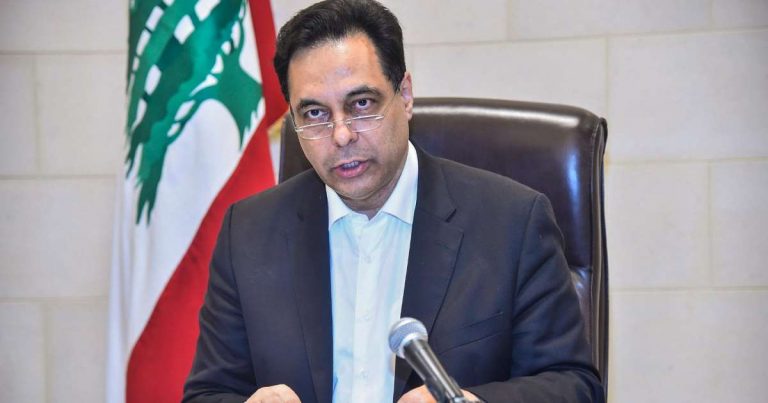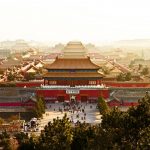August 4th is the day of what is called the Lebanese ground zero. The explosions were caused by the presence of 2750 tons of ammonium nitrate. The official thesis so far is that of the accident, of sparks that set fire to fireworks and then detonated the immense amount of ammonium nitrate present in the port. Although the word accident is not the most suitable given that such an amount of ammonium nitrate had been lying in a densely populated area for 6 years. The explosion, to date, has killed 220 people of which around 50 are Syrian refugees (around 500 people are still missing), there are more than 7,000 people injured, over 300,000 people they were left homeless, and according to the governor of Beirut there are damages of over 2 billion dollars. The explosion destroyed most of Lebanon’s grain reserves (more than 85% were located in the silos at the port) and most of the reserves of medical equipment. Prime Minister Hassan Diab have announce resignation of Lebanese government and nine members of parliament have resigned in protest after the blast.
The explosion will only deteriorate an economic situation that has already been in free fall for several months. Only ten days ago “Save the Children” indicated that in the metropolitan area of Beirut almost one million people cannot afford to buy basic necessities – including food. In a population of nearly 4 million there are over one and a half million Syrian refugees. The Lebanese pound has lost more than 80 percent of its value since October, banks have largely refused to dispense their customers’ savings as they grapple with their insolvency. Lebanese politicians have responded to the country’s political and economic crisis with the usual lack of seriousness. Consequently, negotiations with the International Monetary Fund on an economic bailout package stalled.
Could the explosion that rocked the Lebanese capital on August 4th and left an apocalyptic scenario really be caused by neglect and corruption? The hypotheses are various. The first and the official one is that of the accident. The 2,750 tons of ammonium nitrate have been lying in the port of Beirut for 6 years. In 2013, Lebanese authorities seized the explosive material aboard the Rhosus, a Moldovan ship headed by a Russian citizen, in route from Georgia to Mozambique. The cargo was stored in the port of Beirut in warehouse 12 until 4 August when it exploded. The claim that the fireworks were stored near the ammonium nitrate warehouse appears to be confirmed by both Lebanese Customs Chief Badri Daher and telephone footage of a dock worker from the grain silo roof. Sixteen people in the port’s administration, including its general manager, were placed under house arrest.
But other theses run. President Aoun himself wrote in a statement posted on Twitter: “There are two possibilities for what happened. Either it was a result of negligence, or external interference from a missile or a bomb.” And the second is one of the theses that many think both in Lebanon and abroad. Donald Trump spoke of the attack, although the Pentagon spokesman reiterated that nothing is definitive yet and it has not ruled out the incident. If it was an attack it could be by terrorist cells or secret services. Most of those who hold this thesis think it was Israel. In this case, it means that Hezbollah missiles and weapons lay in the vicinity of the ammonium nitrate. Prime Minister Benjamin Netanyahu in 2018 accused Hezbollah of “using the innocent people of Beirut as human shields” in its choice of military sites and promised that Israel would not let it get away with it. “Everyone also knew that despite Israel’s attacks within Syrian and Iranian territory against Iranian military structures there was a tacit agreement that at this moment this would not happen in Lebanon. Except that Hezbollah has broken the agreement with the latest missions of its men within Israel. This would have been the reason for the attack in the port, but Israel did not know of the existence of nitrate or perhaps it underestimated the effects.
In fact, to counter this thesis Israel has denied any involvement by Foreign Minister Gabi Ashkenazi who told Israeli N12 television that the explosion was most likely an accident. And the leader of Hezbollah, Hassan Nasrallah, in his TV appearance denied any military presence of the party in the port and hinted that only an investigation would reveal the cause of the catastrophe. President Aoun also said that an internal investigation would be carried out and asked France for satellite images, but denied the possibility of any independent international investigation that various Lebanese groups and NGOs have requested and of which the French President Macron has also become spokesman. “If we can’t rule ourselves, no one can rule us,” Aoun said. Blaming Israel for the explosion would force Hezbollah on the one hand to admit that there was explosives in the port and on the other it would force it to respond. That would trigger a catastrophic war that neither side would like.
Having said that, weapons or not weapons, behind the stock of 2750 tons of ammonium nitrate there is a clear responsibility of politics and of Hezbollah. In Lebanon, nothing happens in sensitive places like airports, ports and borders that Hezbollah is not aware of and does not have control of them. So clearly the disastrous situation in Lebanon, of which the explosion of the port is only the apex, is the direct consequence of Lebanese politics since the civil war, of the nepotism, patronage and corruption that is rampant in the country and of Hezbollah. The political class has drained all the resources of the country and pushed Lebanon to the brink of bankruptcy without ever assuming responsibility. Over the years, Hezbollah with the strength of its weapons and its pro-Iranian policies has become a threat to the country system, but also an alibi for a political class that is reluctant to give up its status quo. The Lebanese people have risen many times in the past, since 2005 when former Prime Minister Rafik Hariri was assassinated in an attack until the demonstration on Saturday 8 August in response to the devastation of the city by the explosion. On Saturday the demonstrators occupied 4 ministries and in the clashes 728 people were injured of which 153 were taken to hospital. Up to now all the movements with the passage of time have divided and the political parties have managed to co-opt them. But the explosion of August 4 showed more than ever the urgency of reforms and changes to the system. Will this tragedy be able to act as a catalyst? Too early to answer that. The only certainty is that if there is no change in the political class and if Hezbollah maintains its status, it would be the end of Lebanon. The country can no longer afford such a trap.
Author
-

Researcher on International Relations Middle East and Balkans
View all posts
CSSII- Centro Interdipartimentale di Studi Strategici, Internazionali e Imprenditoriali,
Università di Firenze, Italy, Albania




